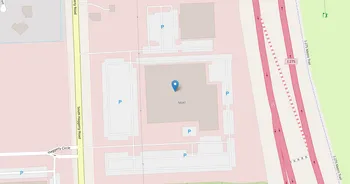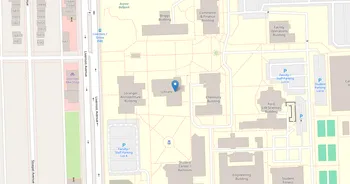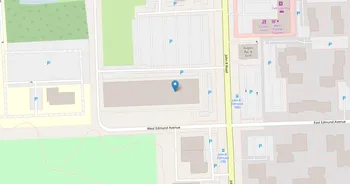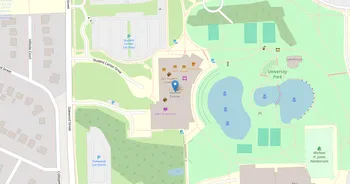Detroit Business Institute (DBI), Downriver : Overview, Courses, Scholarships & Rankings
About Detroit Business Institute
Set in the Downriver community, Detroit Business Institute-Downriver is known for practical, career-focused study in areas like healthcare, business, and office support. Classrooms sit beside skill labs and computer suites, so practice follows theory quickly. Students find approachable advising, tutoring, career coaching, and quiet study nooks, plus a few easygoing spaces to recharge between classes.
It's a commuter-friendly campus with a close-knit vibe, where instructors learn names and classmates share real-world tips. Workshops, peer groups, and service projects add life outside lectures, while nearby riverfront parks and metro Detroit's music and sports keep weekends interesting. The culture leans supportive and no-nonsense. Career preparation runs through everything, with the school known for employer connections, mock interviews, and professional recognition events that signal the step from classroom to workplace.
Key Institutional Details
Contact & Profile
Academic & Institutional
Academic Programs & Fields of Study
Detroit Business Institute (DBI), Downriver offers 1 degree programs across 1 major academic fields, graduating approximately 73 students annually. The most popular fields by graduate volume are Health (1 programs, 73 graduates). Explore program details, award levels, and graduate demographics below.
Health (1 programs, 73 graduates)
Healthcare Professions, Medical Sciences and Clinical Practice
| Program Name | Graduates | Gender Distribution | Award Levels | CIP Code |
|---|---|---|---|---|
| Licensed Practical Nursing | 73 |
|
Certificate (1-2 yrs)
|
51.3901 |
Admission Requirements & Test Scores
Comprehensive overview of admission criteria, standardized test score ranges, and application requirements for prospective students at Detroit Business Institute (DBI), Downriver.
Application Requirements
Data based on IPEDS for 2022-2023 academic year. Test score ranges represent the middle 50% of admitted students (25th-75th percentile). Requirements may vary by program.
Tuition, Fees & Estimated Costs
Overview of tuition rates, housing, and other annual education expenses for undergraduate and graduate students
Financial Aid & Student Support
Summary of scholarships, grants, student loans, and financial aid statistics for undergraduate students
Student Success Metrics
Graduation rates and post-graduation earnings to help assess student outcomes and long-term value of education.
Loan Burden & Repayment Outcomes
Breakdown of loan repayment rates and student debt levels by income and dependency status.
Frequently Asked Questions
Find answers to the most common questions about Detroit Business Institute (DBI), Downriver
What academic programs and degree levels does Detroit Business Institute, Downriver offer?
Detroit Business Institute (DBI), Downriver offers 1 academic programs across 1 major fields of study, with available degree levels: Certificate (1-2 yrs).
Most popular program areas include:
- Healthcare Professions, Medical Sciences and Clinical Practice (1 programs)
Data based on IPEDS program completions for 2023-2024 academic year. Numbers reflect programs where students graduated, not all offered programs.
What is the acceptance rate for Detroit Business Institute, Downriver?
Detroit Business Institute (DBI), Downriver has an 50% acceptance rate and a 50% yield rate, making it selective.
Admission statistics breakdown:
- Total applicants: 16
- Students admitted: 8
- Students enrolled: 4
Data based on IPEDS for 2022-2023 academic year. Admission statistics may vary by program and application cycle.
What financial aid and scholarships are available at Detroit Business Institute, Downriver?
Detroit Business Institute (DBI), Downriver provides financial aid to 4% of first-time, full-time students, with average grants of $8,273 and average loans of $6,078.
Average financial aid amounts by type:
- Pell grants: $5,516
- State/Local grants: $595
- Federal loans: $6,078
The university supports 5 students with grants and 6 students with loans annually.
Data based on IPEDS for 2022-2023 academic year. Financial aid amounts and percentages may vary by program, enrollment status, and individual circumstances.
What is the average salary for Detroit Business Institute, Downriver graduates?
Detroit Business Institute (DBI), Downriver graduates earn a median salary of $44,270 after 6 years and $26,702 after 10 years.
The salary range 10 years after graduation spans from $10,664 (25th percentile) to $42,697 (75th percentile).
Data based on IPEDS for 2022-2023 academic year. Salary data reflects graduates who received federal financial aid (approximately 60% of all graduates). Actual earnings may vary significantly based on program, location, and individual circumstances.
Related Universities




Found something useful? Help others discover it too! Share with friends, on social media, or save for later - every share helps someone find the information they need.